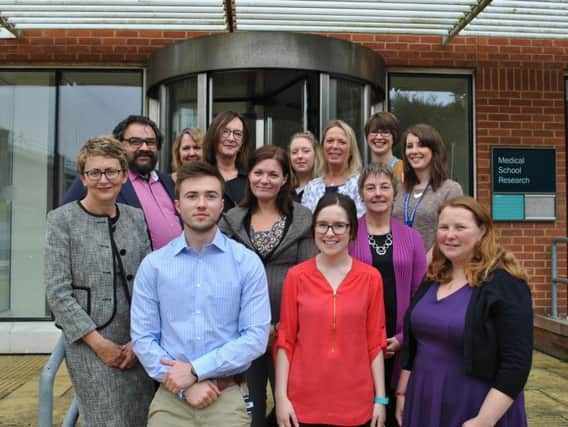University project on dementia wins health award


Time for Dementia won in the education-related category of the Health Services Journal (HSJ) Awards on November 22, nearly six weeks after it took another prize at the Positive Practice in Mental Health Awards.
Judges for the HSJ awards praised the scheme for humanising care involving long-term conditions and its potential impact on future healthcare.
Advertisement
Hide AdAdvertisement
Hide AdProfessor Sube Banerjee, director of the initiative, said: “This is the most ambitious programme of its type anywhere in the world. It is already changing the way in which healthcare students of the future learn about dementia.”


Students in healthcare-related fields visit families affected by dementia three to four times a year as part of the project run by Brighton and Sussex Medical School, University of Surrey, the Alzheimer's Society and NHS.
Launched in 2015, more than 1,300 students and 600 families have since participated to improve students’ understanding, attitudes and empathy towards people with dementia and their carers.
Keegan Curlewis, a third-year medical student, said: “It’s just really nice to be able to build our communication skills and learn how to deal with someone who’s got a disease such as dementia and how it affects their family.
Advertisement
Hide AdAdvertisement
Hide Ad“I am proud to be part of a programme that’s been so good and to have been able to learn so much from it.”
Dr Stephanie Daley, Time for Dementia lead, said: “Increasingly there are more and more people both with dementia but also living longer and with potentially more than one long-term condition.
“By skilling up the future healthcare professionals, then what we’re doing is to deal with the problems of medicine in the future.”
The Universities of Brighton, Canterbury, and Greenwich will join the scheme within the next two years.